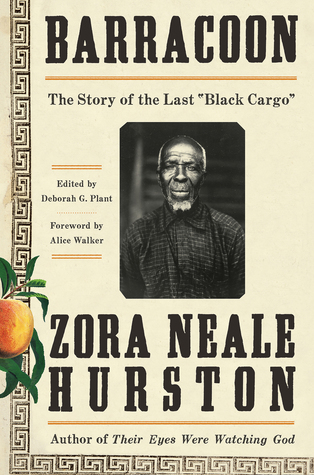More on this book
Community
Kindle Notes & Highlights
Hurston’s manuscript is an invaluable historical document, as Diouf points out, and an extraordinary literary achievement as well, despite the fact that it found no takers during her lifetime. In it, Zora Neale Hurston found a way to produce a written text that maintains the orality of the spoken word. And she did so without imposing herself on the narrative, creating what some scholars classify as orature.
Embedded in the narrative of Barracoon are those aspects of ethnography and folklore collecting that reveal Hurston’s methodology and authenticate Kossola’s story as his own, rather than as a fiction of Hurston’s imagination. The story, in the main, is told from Kossola’s first-person point of view. Hurston transcribes Kossola’s story, using his vernacular diction, spelling his words as she hears them pronounced. Sentences follow his syntactical rhythms and maintain his idiomatic expressions and repetitive phrases. Hurston’s methods respect Kossola’s own storytelling sensibility; it is one
...more
How has the Nigerian “heathen” borne up under the process of civilization? I was sent to ask.
“Yeah, in Afficky we always know dere was a God; he name Alahua, but po’ Affickans we cain readee de Bible, so we doan know God got a Son. We ain’ ignant—we jes doan know. Nobody doan tell us ’bout Adam eatee de apple, we didn’t know de seven seals was sealee ’gainst
“Thankee Jesus! Somebody come ast about Cudjo! I want tellee somebody who I is, so maybe dey go in de Afficky soil some day and callee my name and somebody dere say, ‘Yeah, I know Kossula.’ I want you everywhere you go to tell everybody whut Cudjo say, and how come I in Americky soil since de 1859 and never see my people no mo’. I can’t talkee plain, you unnerstand me, but I calls it word by word for you so it won’t be too crooked for you. “My name is not Cudjo Lewis. It Kossula.
“While dey ketchin’ me, de king of my country he come out de gate, and dey grabee him. They see he de king so dey very glad. Derefore, you unnerstand me, dey take him in de bush where de king of Dahomey wait wid some chiefs till Takkoi be destroy, when he see our king, he say to his soldiers, ‘Bring me de word-changer’ (public interpreter).
“When de sun rise we eat and march on to Dahomey. De king send word to every town we passee and de head-man come out. If dey got a red flag, dat mean dey ’gree dey ain’ goin’ pay no tax to de Dahomey. Dey say dey will fight. If it a white flag, dey pay to Dahomey whut dey astee dem. If it a black flag, dat mean dat de ruler is dead and de son not old ’nough to take de throne. In de Affica soil when dey see de black flag, dey doan bother. Dey know it be takin’ advantage if dey make war when nobody in charge. “De
“We stay dere not many days, den dey march us to esoku (the sea). We passee a place call Budigree (Badigri) den we come in de place call Dwhydah. (It is called Whydah by the whites, but Dwhydah is the Nigerian pronunciation of the place.)4
“When we dere three weeks a white man come in de barracoon wid two men of de Dahomey. One man, he a chief of Dahomey and de udder one his word-changer. Dey make everybody stand in a ring—’bout ten folkses in each ring. De men by dey self, de women by dey self. Den de white man lookee and lookee. He lookee hard at de skin and de feet and de legs and in de mouth. Den he choose. Every time he choose a man he choose a woman. Every time he take a woman he take a man, too. Derefore, you unnerstand me, he take one hunnard and thirty. Sixty-five men wid a woman for each man. Dass right.
Dey tookee us off de ship and we git on another ship. Den dey burn de Clotilde ’cause dey skeered de gov’ment goin’ rest dem for fetchin’ us ’way from Affica soil.


